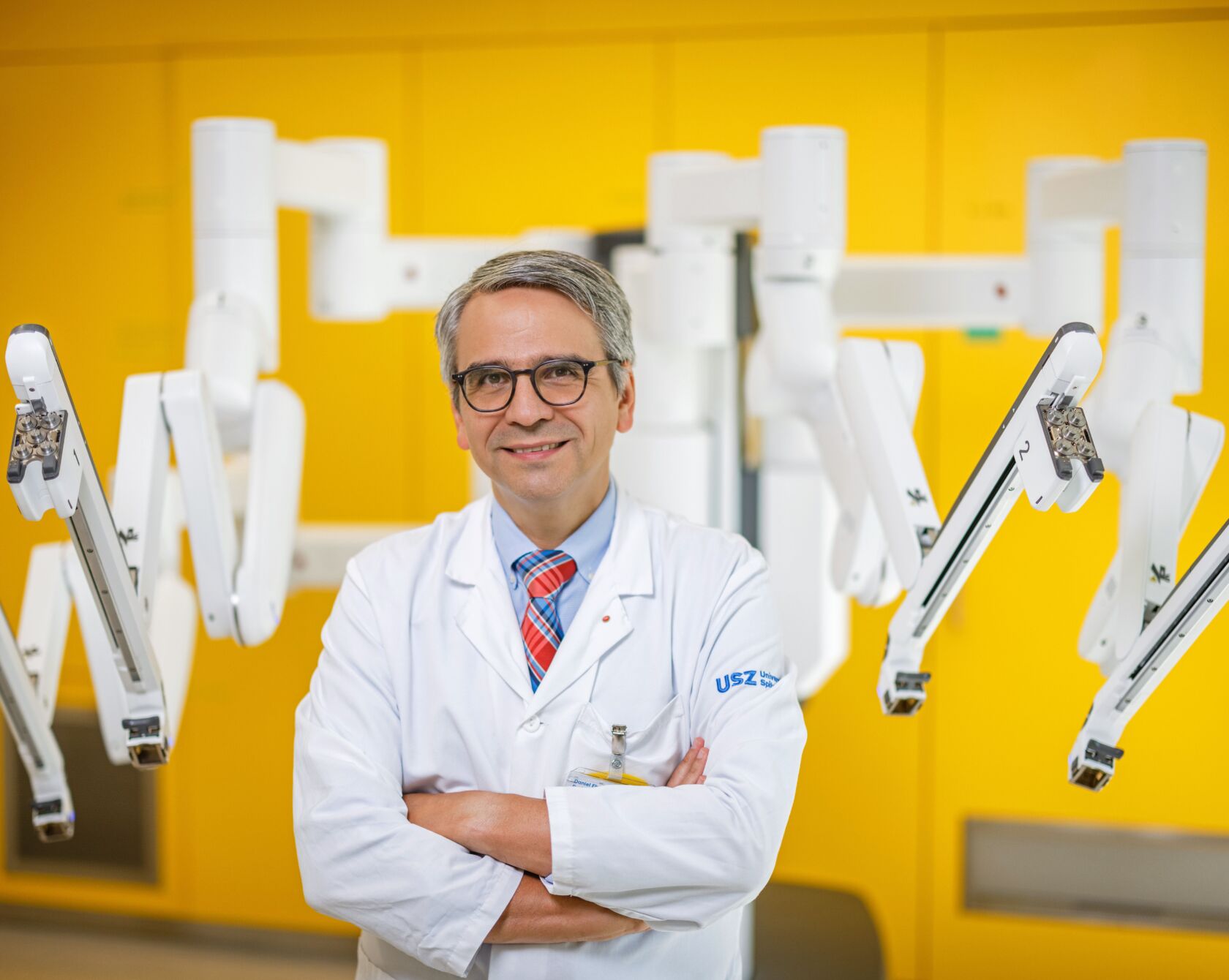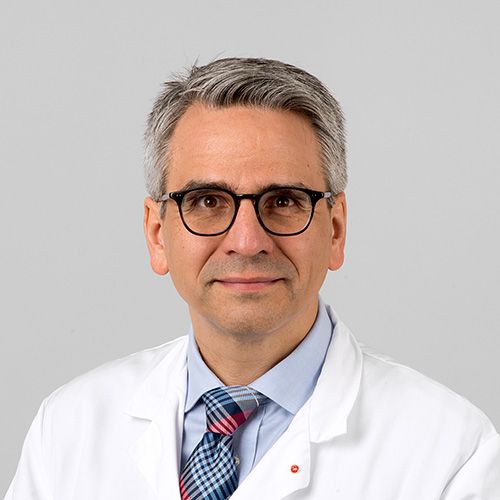The Department of Urology often operates on a robot-assisted basis. Daniel Eberli helped to shape the introduction of the innovative surgical technique at the University Hospital Zurich and, as Director of Department, wants to continuously develop robotics expertise within the team.
Like a giant spider, the four arms of the surgical robot wind around Daniel Eberli. But only for the photo. During procedures, the Director of Department stands at the operator terminal and directs the robotic arms, which are fitted with delicate precision instruments. “We operate with greater precision when assisted by a robot than my hand could ever do.” The scissors, for example, have blades that are not even the size of the smallest Victorinox Swiss army knife. Ten years of practical experience, 450 procedures using robots and certifications for special robotics methods distinguish the new man at the helm of the Department of Urology.
His enthusiasm for robot-assisted surgical techniques is no accident. “In the Department of Urology, we recognized the advantages for our patients at an early stage. They lose practically no blood during the procedure, we can work with great precision and the recovery time is drastically reduced.” Another advantage is that organs and tissue can be kept intact through the new technological possibilities. It is not without reason that the Department of Urology at USZ is one of the most innovative players in Switzerland with great development potential and attracts both trainees and patients from all over the world.
Knowledge transfer within the team
However, technical expertise is developing at a rapid pace. “I expect at least two team members to be world-class in each of our departments.” Daniel Eberli focuses on dialog and knowledge transfer. During assignments in foreign clinics, the surgeons should acquire new technological knowledge, bring the acquired techniques back to USZ and continuously develop them as part of their team.
With robot-assisted surgery, Daniel Eberli is also clearly fulfilling the wishes of his main clientele. 75% of his patients are male and are in the second half of their lives. “Many men are tech savvy and expect state-of-the-art equipment during procedures.” 6,000 new cases of prostate cancer are registered in Switzerland every year. 1,500, mostly elderly men, die from it. “This means that a great many patients can therefore be treated successfully,” says Daniel Eberli.


